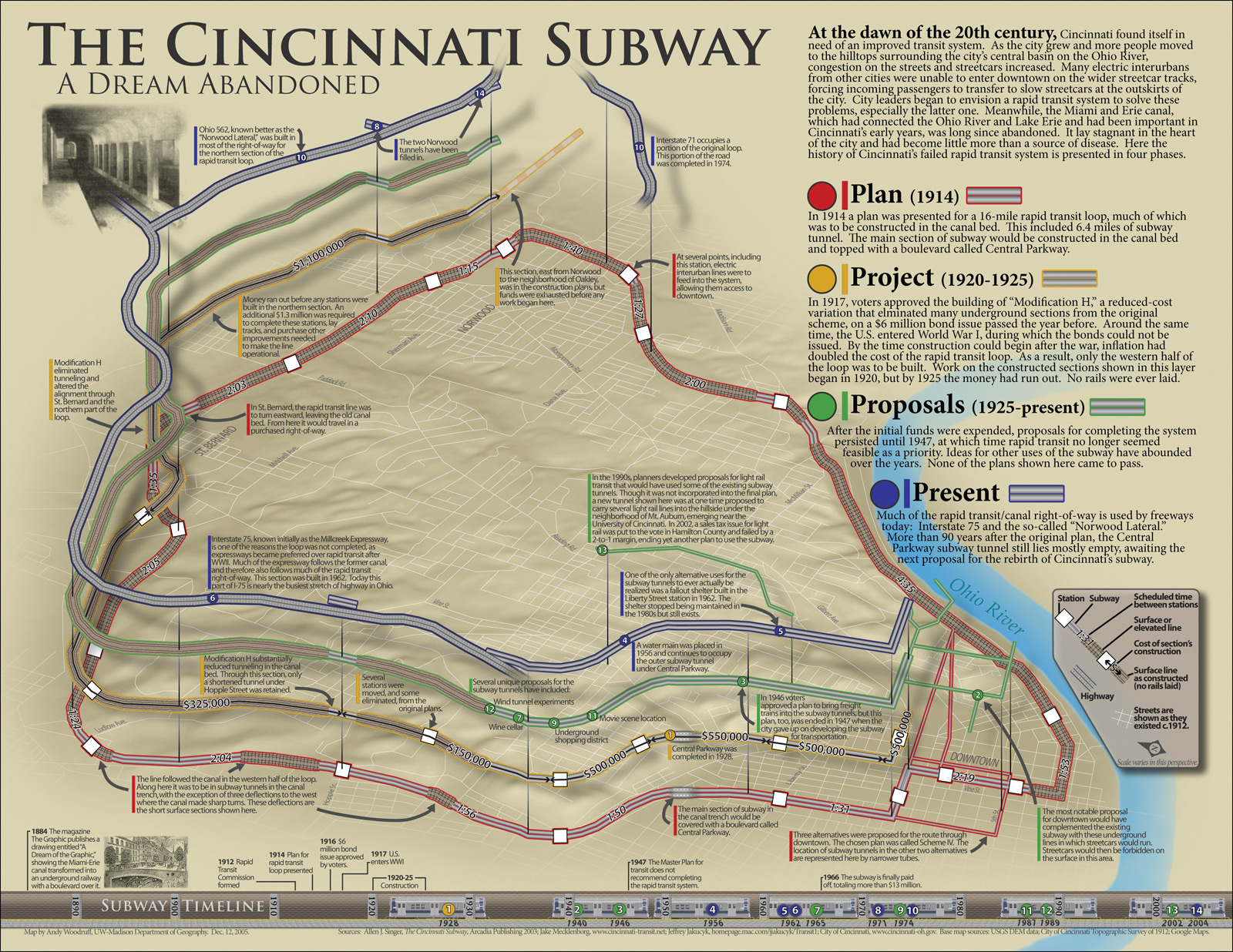Cincinnati’s abandoned rapid transit project is a subject of continual interest. Although many are familiar with the unused two-mile tunnel beneath Central Parkway, little remains of the ten miles of surface-running right-of-way built in the mid-1920s between Camp Washington and Norwood.
This graphic by Andy Woodruff, from the UW-Madison Department of Geography, illustrates which sections of the so-called Rapid Transit Loop were built, which parts were replaced by expressways, and which parts were planned but not funded and built.
So why was the Rapid Transit Loop started but not completed?
The project had several forces working against it, especially wealthy Downtown landowners who stood to lose money and influence if the city’s most valuable property shifted from Fountain Square north to Central Parkway. The likelihood of that happening was heightened by the Rapid Transit Commission’s decision to forego construction of the Walnut Street Subway as part of the project’s first phase.
Those who owned property lining Central Parkway knew that construction of a tunnel under Mt. Adams, linking the Loop’s never-built eastern half, would likely cost less than construction of the Walnut Street Subway and cause the loop’s traffic to bypass the city’s established epicenter entirely.
The second interest acting to scuttle the subway project was the consortium of seven steam railroads that commenced construction of Cincinnati’s spectacular Union Terminal in 1929.
An ancillary feature of the Rapid Transit Loop was its intention to serve the area’s electric interurban railroads at a multi-track terminal centered beneath the intersection of Race Street and Central Parkway. The interurban terminal’s more convenient location promised to erode the redundant services of the steam railroads.
Editorial Note: In addition to focusing on UrbanCincy’s transportation coverage, Jake authored a book about Cincinnati’s infamously abandoned subway and rapid transit project. First published in 2010, Cincinnati’s Incomplete Subway: The Complete History is considered to be the most comprehensive analysis of the events leading up to and after one of the city’s most notorious missteps.

